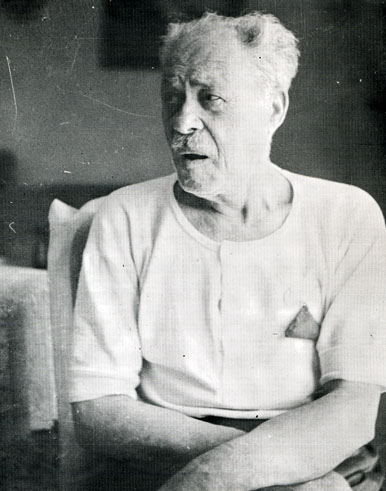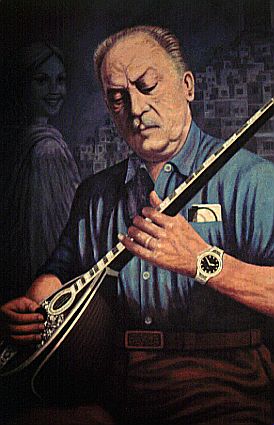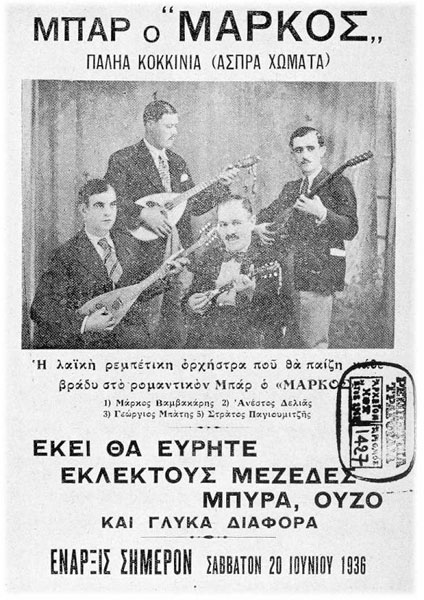Markos Vamvakaris - Greek Music Rempetika


Markos was born to a poor working family on the island of Syros in 1905. His father played the greek bagpipes called Gaida and Markos would accompany him on the dog-skinned drum. When Markos was eight years old he left school to work with his mother in a cotton thread factory, which he promptly ditched and started picking up odd jobs like newspaper boy, butchers assistant, eventually getting mixed up with the underworld of the streets.
When he was fifteen years old he stowed away on a ship to Piraeus and got a job loading coals on the docks. This was tough, low-down work, but the nights were all about hashish and women. He was kept in fine clothes by an older whore and hung out at the tekes every night. In 1925, Markos heard Old Nikos play bouzouki and was immediately hooked. Six months later he was playing at a teke when Old Nikos stopped by, he couldn't believe it was the same kid who'd never even played a few months earlier. Nikos said they'd show Markos something i the morning and he'd come back and play it better than them in the evening.
Because the bouzouki was considered a low-class instrument, it had not been recorded until 1932 when Yiannis Halikias (aka Jack Gregory), a greek-american, recorded his "Minor Tou Deke". The record was very popular, so Spyros Peristeris, who was working as a record producer, composer and instrumentalist for Odeon records in Greece, convinced Odeon to record Vamvakaris. In 1933, Peristeris supervised, and played guitar on Markos' first recording session (although he had recorded two songs in 1932 for Columbia, they were not released until later). Markos recorded one zebekiko, O Dervises, and one Hassapiko, O Harmanes. Markos hadn't considered himself a singer but ended up doing the vocals on these records. They were very successful and Markos' rough and powerful singing became fashionable.
Markos eventually teamed up with singer Stratos Pagioumitzis, baglamatzis Jiorgos Batis, and bouzouki player Anestis Delias to form his famous Piraeus Quartet. His popularity was sustained throughout the 1930's, despite growing political turmoil. Eventually the style of rebetika that Markos had pioneered became more mainstream, and by the 1940's Tsitsanis had started changing the subject matter to be about love and less about hashish, prison and other rebetika topics. Likewise, Hiotis started changing the sound of the music, adding strings to the bouzouki in 1956 and moving towards a more flashy, electric and westernized sound. Markos continued to record in his older style through this period. He passed away in 1972.

Rare photograph from an advertisement of 1936





